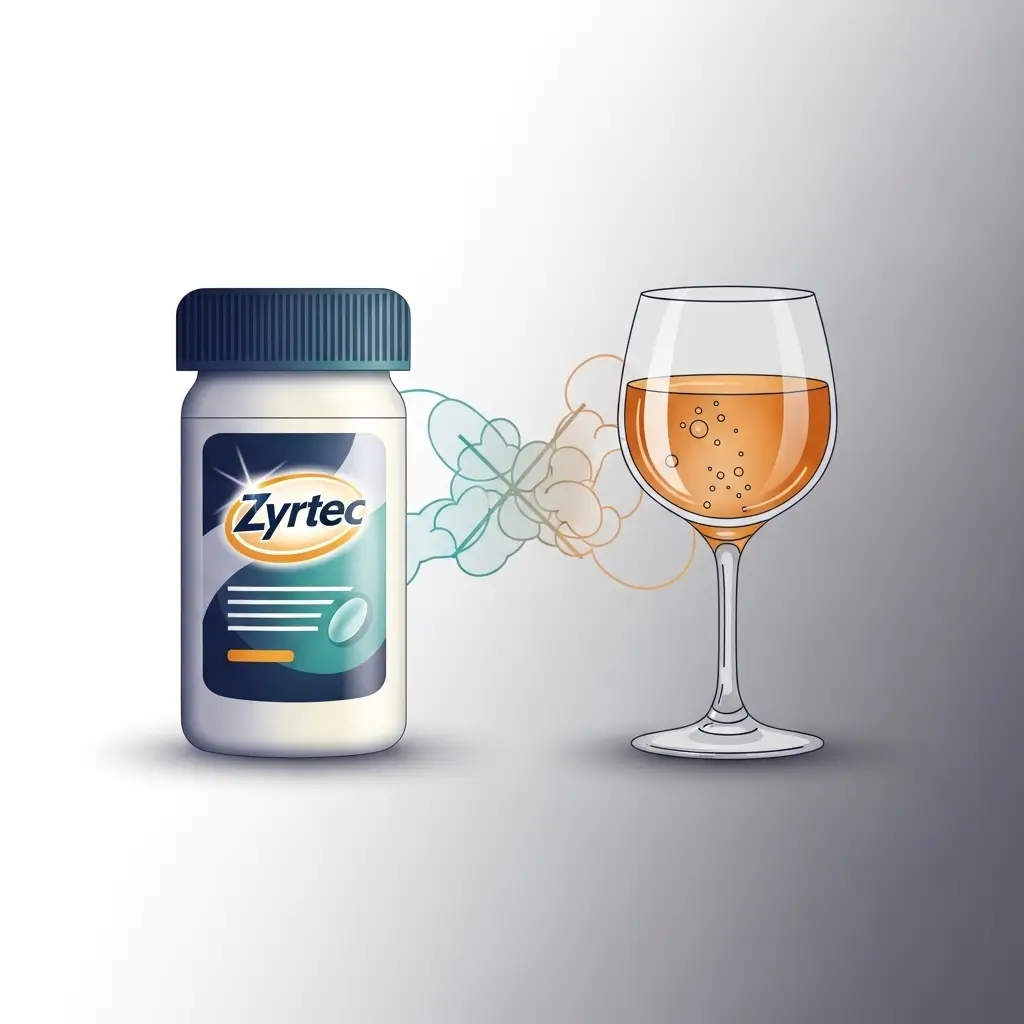The Dangers of Opiate Abuse
Opiate abuse is associated with a range of dangerous side effects that can have severe consequences on an individual's health and well-being. Understanding these risks is crucial in raising awareness and promoting prevention. In this section, we will discuss the long-term effects of opiate use, as well as the respiratory side effects and gastrointestinal complications that can arise from opiate abuse.

Long-Term Effects of Opiate Use
Long-term use of opiates can have significant impacts on various aspects of an individual's life. One of the notable long-term effects is anhedonia, which refers to a decreased ability to experience pleasure. This condition can contribute to the cycle of addiction, making it even more challenging for individuals to overcome their dependence on opiates. The long-term use of opiates can also result in hormonal imbalances that affect the reproductive system. Women may experience irregular menstruation, while men may experience a decrease in testosterone levels. These hormonal changes can have profound effects on overall health and well-being.
Respiratory Side Effects
Opiates have potent effects on the central nervous system and can suppress respiratory function. One of the most dangerous side effects of opiate abuse is respiratory depression, where breathing slows down significantly. This can lead to hypoxia, a condition characterized by a lack of oxygen in the body. In severe cases, respiratory depression can be life-threatening and result in fatality. It is important to note that the risk of respiratory side effects increases when opiates are used in high doses or in combination with other substances, such as alcohol or benzodiazepines.
Gastrointestinal Complications
Prolonged opiate use can disrupt the normal functioning of the gastrointestinal system, leading to various complications. One common gastrointestinal issue associated with opiate abuse is constipation. Opiates slow down the movement of the intestines, resulting in infrequent bowel movements and difficulty passing stool. This can cause discomfort, bloating, and abdominal pain. In addition, opiate abuse can lead to difficulty swallowing, which can further exacerbate gastrointestinal problems and potentially result in severe complications over time if left untreated [1].
By understanding the dangers of opiate abuse, individuals and communities can take steps to prevent and address addiction. It is crucial to raise awareness about the long-term effects, respiratory side effects, and gastrointestinal complications associated with opiate abuse. Early intervention, education, and access to appropriate treatment can help mitigate the risks and improve outcomes for those affected by opiate abuse.
Health Risks of Opiate Abuse
Opiate abuse can have severe health risks and consequences. Understanding these risks is crucial in raising awareness about the dangers associated with opiate abuse. This section will delve into three significant health risks: hormonal imbalances, tolerance and overdose risk, and life-threatening side effects.
Hormonal Imbalances
Chronic opiate use can lead to hormonal imbalances that disrupt normal bodily functions. Women may experience irregular menstruation due to alterations in hormone levels, while men may face decreased testosterone levels. These hormonal imbalances can have a significant impact on reproductive health and overall well-being.
Tolerance and Overdose Risk
One of the concerning aspects of opiate abuse is the development of tolerance. Over time, individuals may require higher doses of opiates to achieve the same effect they initially experienced. This increased tolerance significantly raises the risk of overdose as higher doses can overwhelm the body's ability to safely process the drug. The risk of overdose is a serious concern and demands immediate attention and intervention [1].
Life-Threatening Side Effects
Opiate abuse can have life-threatening side effects, particularly due to its impact on the respiratory system. Opiates have a suppressing effect on the central nervous system, which can result in respiratory depression. This condition slows down breathing to dangerous levels, leading to oxygen deprivation and potentially fatal consequences.
In addition to respiratory depression, opiate abuse can cause severe complications such as coma and even death. Opioid overdose can result in irreversible brain damage caused by hypoxia, a state where tissues are deprived of adequate oxygen supply. The long-term cognitive and neurological consequences of such damage can be devastating.
Understanding these health risks associated with opiate abuse is vital in fostering awareness and emphasizing the need for prevention, treatment, and support. It is essential to prioritize interventions that address these risks comprehensively and help individuals struggling with opiate abuse seek the necessary help to regain their health and well-being.
Impact of Opiate Abuse
Opiate abuse not only poses serious risks to individuals' health but also has far-reaching consequences on society as a whole. The impact of opiate abuse can be observed in both social and economic spheres, placing burdens on various aspects of life.
Social and Economic Consequences
Prolonged opiate abuse can have significant social implications, affecting various aspects of an individual's life. One of the most prevalent consequences is unemployment and financial instability. Individuals struggling with opiate abuse often face difficulties in maintaining employment, which can lead to financial hardships and increased dependence on social welfare programs. Strained relationships with family and friends are also common, as opiate abuse can strain trust and create emotional turmoil within these relationships. These social consequences can further exacerbate the negative impact on individuals' lives beyond the physical health implications.
Furthermore, opiate abuse places a substantial burden on healthcare systems, law enforcement agencies, and social services. Increased hospitalizations and emergency room visits are common among individuals struggling with opiate abuse, leading to higher healthcare costs and resource utilization. The need for addiction treatment services, counseling, and rehabilitation programs also puts pressure on existing social services. Additionally, criminal activities associated with substance misuse, such as theft and drug-related offenses, contribute to the strain on law enforcement resources [3].
Healthcare System Burden
The healthcare system bears a significant burden as a result of opiate abuse. Hospitalizations related to opiate abuse can be frequent and lengthy, placing strain on healthcare facilities and resources. Emergency room visits due to opiate overdoses and related complications add to the workload of healthcare professionals. The costs associated with providing comprehensive care, including medical interventions and addiction treatment, further contribute to the burden on healthcare systems.
Moreover, the long-term health consequences of chronic opiate abuse can be severe. Individuals who abuse opiates are more susceptible to infections, liver damage, and cognitive impairments, which have long-lasting effects on their overall well-being and quality of life. Treating these health issues requires significant resources and medical interventions, further straining the healthcare system.
The impact of opiate abuse extends beyond the individual, affecting society at large. By understanding the social and economic consequences, as well as the burden placed on healthcare systems, it becomes evident that addressing opiate abuse is essential not only for the well-being of individuals but also for the overall welfare of communities. Effective prevention strategies, access to treatment, and support services are crucial in mitigating the impact of opiate abuse and fostering healthier communities.
Prevention and Treatment Strategies
When it comes to combating opiate abuse and its dangerous side effects, prevention and treatment strategies play a crucial role in addressing the issue. By implementing effective measures, individuals can reduce the harm caused by opiate abuse and seek the necessary support. Here are three key strategies for prevention and treatment:
Naloxone and Harm Reduction
Naloxone is a life-saving medication used to reverse opioid overdoses. In Canada, naloxone is readily available through pharmacies to combat opioid overdoses. Health Canada provides a list of pharmacies that carry naloxone, ensuring easy access to this crucial medication.
Harm reduction approaches aim to minimize the negative consequences associated with opiate abuse. These strategies include needle exchange programs, safe injection sites, and education on safe drug use practices. By providing access to clean needles and a safe environment for drug use, harm reduction initiatives reduce the risk of infectious diseases and overdose fatalities.
Support Hotlines and Text Services
Various hotlines and text services are available to provide support for individuals dealing with substance use issues in Canada. These helplines offer confidential assistance and guidance to those seeking help. For general help, individuals can contact the general helpline at 1-800-668-6868. Text services are also available, with the number 686868 providing access to text support.
Specific lines are also available for parents seeking support in dealing with their child's substance use. The parent support helpline can be reached at 1-866-585-0445. These helplines and text services offer a lifeline to individuals in need, providing them with resources, guidance, and a listening ear.
Integrating Substance Use Disorder Treatment
Integrating substance use disorder treatment into healthcare systems is essential for effectively addressing opiate abuse. This approach involves incorporating substance use treatment and support within existing healthcare services. By integrating these services, individuals struggling with opiate abuse can receive comprehensive care that considers their physical, mental, and social well-being.
Substance use disorder treatment may include counseling, therapy, medication-assisted treatment, and support groups. These services aim to address the underlying causes of opiate abuse, support individuals in their recovery journey, and reduce the risk of relapse. By providing evidence-based treatment options, individuals can receive the support they need to overcome opiate abuse.
By implementing prevention strategies such as naloxone distribution, embracing harm reduction approaches, and ensuring access to support services, individuals struggling with opiate abuse can receive the help they need. Integrating substance use disorder treatment within healthcare systems offers a comprehensive approach to addressing opiate abuse, supporting individuals on their path to recovery. It is essential to continue raising awareness, reducing stigma, and advocating for effective prevention and treatment strategies to combat the dangerous side effects of opiate abuse.
References
[1]: https://adcare.com/opioids/long-term-use/
[2]: https://socalsunrise.com/mental-health-opioid-addiction/
[3]: https://pubmed.ncbi.nlm.nih.gov/18443635/
[4]: https://www.canada.ca/en/health-canada/services/substance-use/















